THE NEW PRESIDENT OF THE ROYAL SOCIETY OF PORTRAIT PAINTERS EXPLAINS HIS APPROACH TO THE GENRE, AS WELL AS HOW HE HOPES TO REINVIGORATE THE ORGANISATION HE LEADS.

Why do you choose to work from life?
The stimulus is the sitter, why paint a photograph? When there’s a living person, there’s life. I use my camera to take a snap of the setup and then blot it off on canvas. It’s just quicker. You can get the heads where you want, it’s a much easier way to get the size and the people in the right place.
How did your studies at the British Institute in Florence influence your practice?
I went to Florence when I was 18. There were just two or three of us and we were very integrated in the painter’s environment; we all spoke Italian. We were taught to do small pictures rather well. We tried to reflect the life or scene rather than impose on it, allowing the object to sing or talk to us. I feel the painter should be anonymous really. You can’t, but, even so, you don’t need to impose yourself.
What influence do the sitters have over the painting?
I don’t think you can do it by yourself. You have to have input. A lot of people have good ideas, especially if it’s in their own house. It’s a bit like a garden: if you have a gardener, you wouldn’t let him just do it, you’d say, “Oh no, I don’t like that colour.” It’s the same with a painting. You have to find out what they want. It’s also interesting to see where the painting might hang. Once you have the spot, you’re three quarters of the way there – it lays out the plan.
Can you talk us through your process?
Esta historia es de la edición November 2017 de Artists & Illustrators.
Comience su prueba gratuita de Magzter GOLD de 7 días para acceder a miles de historias premium seleccionadas y a más de 9,000 revistas y periódicos.
Ya eres suscriptor ? Conectar
Esta historia es de la edición November 2017 de Artists & Illustrators.
Comience su prueba gratuita de Magzter GOLD de 7 días para acceder a miles de historias premium seleccionadas y a más de 9,000 revistas y periódicos.
Ya eres suscriptor? Conectar

Still life IN 3 HOURS
Former BP Portrait Award runner-up FELICIA FORTE guides you through a simple, structured approach to painting alla prima that tackles dark, average and light colours in turn
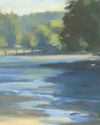
Movement in composition
Through an analysis of three masterworks, landscape painter and noted author MITCHELL ALBALA shows how you can animate landscape composition with movement
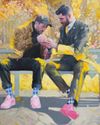
Shane Berkery
The Irish-Japanese artist talks to REBECCA BRADBURY about the innovative concepts and original colour combinations he brings to his figurative oil paintings from his Dublin garden studio

The Working Artist
Something old, something new... Our columnist LAURA BOSWELL has expert advice for balancing fresh ideas with completing half-finished work
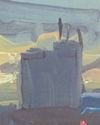
Washes AND GLAZES
Art Academy’s ROB PEPPER introduces an in-depth guide to incorporating various techniques into your next masterpiece. Artwork by STAN MILLER, CHRIS ROBINSON and MICHELE ILLING
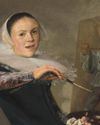
Hands
LAURA SMITH continues her new four-part series, which encourages you to draw elements of old master paintings, and this month’s focus is on capturing hands

Vincent van Gogh
To celebrate The Courtauld’s forthcoming landmark display of the troubled Dutch master’s self-portraits, STEVE PILL looks at the stories behind 10 of the most dramatic works on display
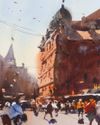
BRING THE drama
Join international watercolour maestro ALVARO CASTAGNET in London’s West End to paint a dramatic street scene
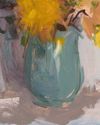
Serena Rowe
The Scottish painter tells STEVE PILL why time is precious, why emotional responses to colour are useful, and how she finds focus every day with the help of her studio wall

Bill Jacklin
Chatting over Zoom as he recovers from appendicitis, the Royal Academician tells STEVE PILL about classic scrapes in New York and his recent experiments with illustration